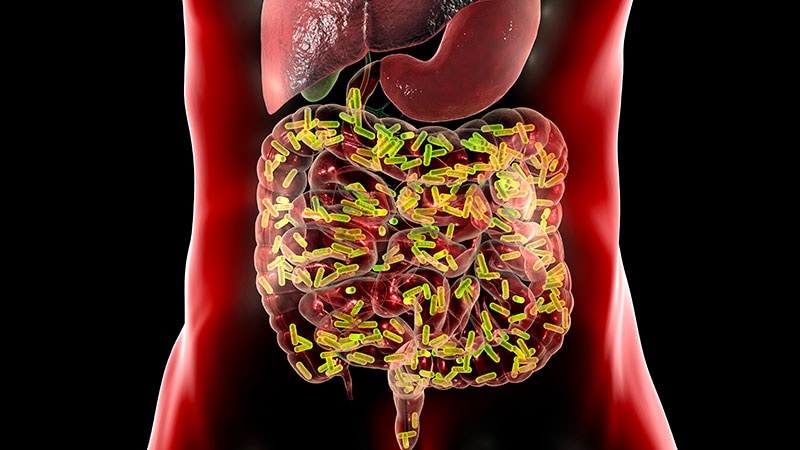New Tech Identifies Key Microbes Instantly
Core Concepts
MicrobeMASST tool identifies microbe-produced metabolites instantly.
Abstract
The content discusses the development of a groundbreaking tool, MicrobeMASST, by researchers at the University of California San Diego. This tool allows for the rapid identification of microbes responsible for producing metabolites, aiding in understanding the microbiome's role in health and disease. The tool's potential impact on medical science and microbiome-based therapies is highlighted, along with its ability to advance research in various diseases. The process of metabolomics, the tool's functionality, and its implications for understanding microbial metabolites are detailed. The content also delves into the project's future plans and its broader applications beyond human health.
'This Is Powerful': New Tech IDs Key Microbes in Seconds
Stats
"Developed from 100 million data points crowdsourced from scientists worldwide, the tool — called microbeMASST— searches a database of 60,000 microbe metabolites."
"The molecules that microbes make can be involved in communication (signaling), metabolizing nutrients or drugs, or modulating inflammation, among other tasks."
"The study of these metabolites is known as metabolomics."
Quotes
"This is powerful," said Eric B. Taylor, PhD, associate professor of molecular physiology and biophysics at the University of Iowa Carver College of Medicine, Iowa. (Taylor wasn't involved in the study.) "This can advance medical science by informing new microbiomic mechanisms of health and disease that may be therapeutically modulated."
"We had a few hundred molecules that were found in the brain, for example," Dorrestein said. The findings show an "exchange of metabolites from the gut to the brain."
Key Insights Distilled From
by Christina at www.medscape.com 02-16-2024
https://www.medscape.com/viewarticle/this-powerful-new-tech-ids-key-microbes-seconds-2024a100039z
Deeper Inquiries
How can the MicrobeMASST tool impact the development of personalized medicine
The MicrobeMASST tool can significantly impact the development of personalized medicine by providing a rapid and accurate way to link specific microbes to the metabolites they produce. This capability is crucial in understanding the role of the microbiome in health and disease. With the tool's ability to identify which microbes are responsible for certain molecules within seconds, healthcare professionals can gain valuable insights into individual patients' microbiomes. This information can lead to the development of personalized treatment plans tailored to a patient's specific microbial composition. By understanding the unique metabolites produced by different microbes in a person's body, healthcare providers can potentially predict how an individual will respond to certain medications or interventions, paving the way for more effective personalized medicine strategies.
What potential challenges or limitations might arise in the widespread application of this tool in healthcare settings
Despite its promising potential, the widespread application of the MicrobeMASST tool in healthcare settings may face several challenges and limitations. One significant challenge is the complexity of the microbiome and the vast number of metabolites produced by different microbes. Ensuring the accuracy and reliability of the tool in identifying the specific microbes responsible for certain metabolites across diverse populations and health conditions could be a challenge. Additionally, the tool's effectiveness may be influenced by variations in sample collection, processing, and data interpretation methods. Standardizing these procedures to ensure consistency and reproducibility across different healthcare settings will be essential for the tool's successful implementation. Moreover, the cost associated with implementing and maintaining the tool, as well as the need for specialized training to use it effectively, could pose barriers to its widespread adoption in healthcare settings.
How might the study of microbial metabolites in various ecosystems contribute to environmental and ecological research
The study of microbial metabolites in various ecosystems can make significant contributions to environmental and ecological research by providing insights into the interactions between microbes and their environments. Understanding the metabolites produced by microbes in different ecosystems, such as plants, soils, oceans, and lakes, can help researchers uncover essential ecological processes and relationships. For example, studying microbial metabolites in soil ecosystems can provide valuable information on nutrient cycling, soil health, and plant-microbe interactions. In aquatic ecosystems, analyzing microbial metabolites can offer insights into water quality, nutrient dynamics, and the impact of environmental changes on microbial communities. By studying microbial metabolites across diverse ecosystems, researchers can gain a deeper understanding of the roles microbes play in maintaining ecosystem balance, resilience, and function. This knowledge can inform conservation efforts, ecosystem management strategies, and environmental monitoring practices to promote sustainability and biodiversity conservation.
0
